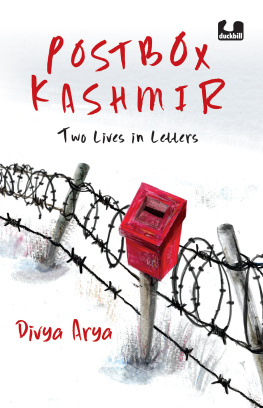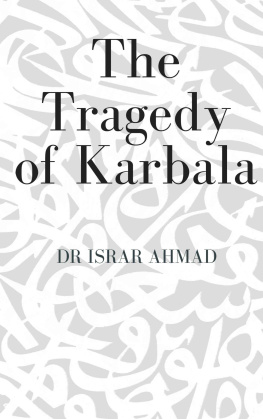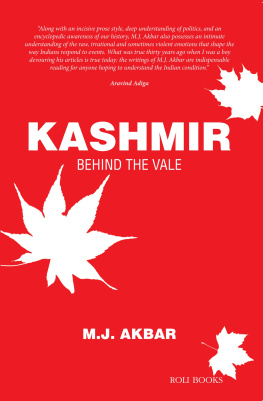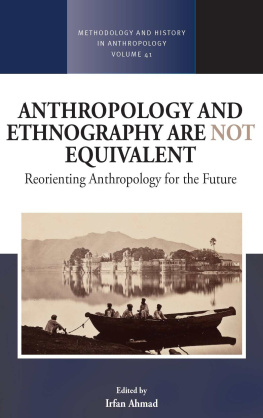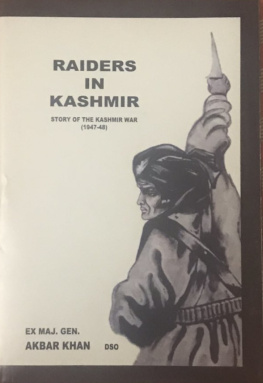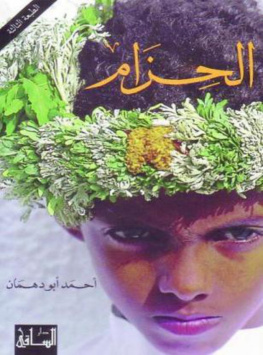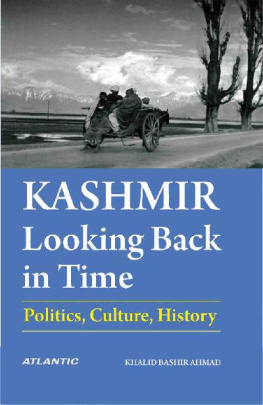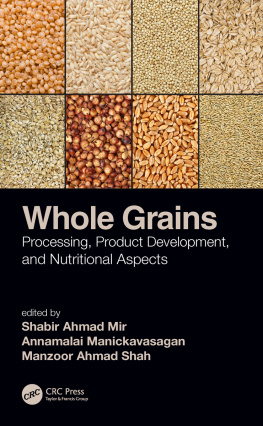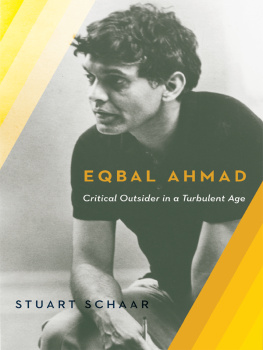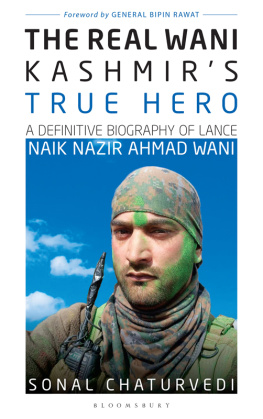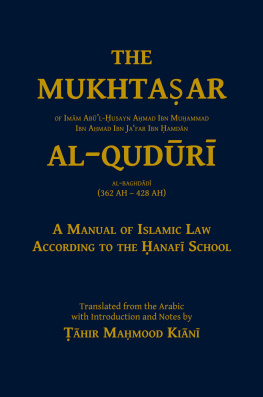Ahmad - Kashmir
Here you can read online Ahmad - Kashmir full text of the book (entire story) in english for free. Download pdf and epub, get meaning, cover and reviews about this ebook. year: 2017, publisher: SAGE Publications, genre: Religion. Description of the work, (preface) as well as reviews are available. Best literature library LitArk.com created for fans of good reading and offers a wide selection of genres:
Romance novel
Science fiction
Adventure
Detective
Science
History
Home and family
Prose
Art
Politics
Computer
Non-fiction
Religion
Business
Children
Humor
Choose a favorite category and find really read worthwhile books. Enjoy immersion in the world of imagination, feel the emotions of the characters or learn something new for yourself, make an fascinating discovery.

- Book:Kashmir
- Author:
- Publisher:SAGE Publications
- Genre:
- Year:2017
- Rating:4 / 5
- Favourites:Add to favourites
- Your mark:
- 80
- 1
- 2
- 3
- 4
- 5
Kashmir: summary, description and annotation
We offer to read an annotation, description, summary or preface (depends on what the author of the book "Kashmir" wrote himself). If you haven't found the necessary information about the book — write in the comments, we will try to find it.
Ahmad: author's other books
Who wrote Kashmir? Find out the surname, the name of the author of the book and a list of all author's works by series.
Kashmir — read online for free the complete book (whole text) full work
Below is the text of the book, divided by pages. System saving the place of the last page read, allows you to conveniently read the book "Kashmir" online for free, without having to search again every time where you left off. Put a bookmark, and you can go to the page where you finished reading at any time.
Font size:
Interval:
Bookmark:

KASHMIR
KASHMIR
EXPOSING THE MYTH
BEHIND THE NARRATIVE
KHALID BASHIR AHMAD

Copyright Khalid Bashir Ahmad, 2017
All rights reserved. No part of this book may be reproduced or utilised in any form or by any means, electronic or mechanical, including photocopying, recording or by any information storage or retrieval system, without permission in writing from the publisher.
First published in 2017 by

SAGE Publications India Pvt Ltd
B1/I-1 Mohan Cooperative Industrial Area
Mathura Road, New Delhi 110 044, India
www.sagepub.in
SAGE Publications Inc
2455 Teller Road
Thousand Oaks, California 91320, USA
SAGE Publications Ltd
1 Olivers Yard, 55 City Road
London EC1Y 1SP, United Kingdom
SAGE Publications Asia-Pacific Pte Ltd
3 Church Street
#10-04 Samsung Hub
Singapore 049483
Published by Vivek Mehra for SAGE Publications India Pvt Ltd, typeset in 1 /13 pt Adobe Garamond by Diligent Typesetter India Pvt Ltd , Delhi and printed at Saurabh Printers Pvt Ltd, Greater Noida.
Library of Congress Cataloging-in-Publication Data
Name: Ahmad, Khalid Bashir, author.
Title: Kashmir : exposing the myth behind the narrative / Khalid Bashir Ahmad.
Description: New Delhi, India ; Thousand Oaks, California : SAGE Publications
India Pvt Ltd, 2017. | Includes bibliographical references and index.
Identifiers: LCCN 2017002728| ISBN 9789386062802 (print) | ISBN 9789386062819 (ePub) | ISBN 9789386062826 (e-book)
Subjects: LCSH: Jammu and Kashmir (India)Historiography. | Kashmiri
PanditsHistoriography. | HistoriographyPolitical aspectsIndiaJammu
and Kashmir. | MythPolitical aspectsIndiaJammu and Kashmir.
Classification: LCC DS485.K25 A54 2017 | DDC 954/.60072dc23 LC record available at https://lccn.loc.gov/2017002728
ISBN: 978-93-860-6281-9 (ePub)
SAGE Team: Rajesh Dey, Alekha Chandra Jena, Megha Dabral and Ritu Chopra
For the people of Kashmir
Thank you for choosing a SAGE product!
If you have any comment, observation or feedback,
I would like to personally hear from you.
Please write to me at
Vivek Mehra , Managing Director and CEO, SAGE India.
Bulk Sales
SAGE India offers special discounts
for purchase of books in bulk.
We also make available special imprints
and excerpts from our books on demand.
For orders and enquiries, write to us at
Marketing Department
SAGE Publications India Pvt Ltd
B1/I-1, Mohan Cooperative Industrial Area
Mathura Road, Post Bag 7
New Delhi 110044, India
E-mail us at
Get to know more about SAGE
Be invited to SAGE events, get on our mailing list.
Write today to
This book is also available as an e-book.

Contents
The transformation of Kashmir from a Hindu to a Muslim society during the 14th15th century AD gave birth to a narrative according to which the Muslim rulers forcibly converted and evicted Hindus from Kashmir and destroyed their religious icons. A minuscule minority of Brahmans, who did not change their faith, based this narrative almost entirely on the observations of a chronicler, Jonaraja, who lived during the early years of Islam in Kashmir and was not at ease with it. The narrative became the hallmark of the Brahman discourse on medieval Kashmir which looks at the five centuries of Muslim rule only as a period of persecution.
Through medieval Kashmir, the narrative made its way to the present times, and in the course, new elements were added to it. Following the eruption of armed insurgency in Kashmir and mass migration of Kashmiri Pandits in 1990, this community narrative got spiced up with additional tales, acting as the foreword of the existing debate on Kashmir. Broadly, the narrative is about the Kashmiri Pandits being the inheritors of a 5,000-year-long history and the only aborigines of Kashmir who were repeatedly persecuted by Muslim rulers and compatriots, forcibly converted to Islamtheir temples were destroyed tooand repeatedly chased away from Kashmir, for the latest time in 1990.
Kashmir: Exposing the Myth b ehind the Narrative attempts to blow away the fog over the realities of Kashmir and questions the facts that have traditionally populated the mythology of the existing narrative. It analyses the Kashmiri Pandit community narrative in the light of historical material and digs out many fallacies by cross-referencing, as is done in widely accepted practices of historiography. The research for the book pits opposite interpretations of same events which have been twisted out of context against what they actually were about. It dissects the stereotype created by historians and others, who have hammered in ahistorical perceptions over a long period of time, by providing suitable representations of some facts and myths through a dispassionate contextual reading of them. Due care has been taken to glean facts from authentic sources and sufficiently reference the arguments. This work is supported by over one thousand references. The objective is to tell fact from fiction and look at events as they occurred, rather than as they have been told. The historical facts discussed here have been overlooked or kept under wraps for a very long time to perpetuate a suitable community narrative.
The scope of the book extends from prehistoric Kashmir right to the present times; this has been achieved by using available Palaeolithic evidence as well as ancient texts. For the contemporary period, this work also relies on interviews of witnesses and an extensive archive of journalistic writing and reportage. The main theme consistently running through the chapters of this book is an attempt to interrogate a historiography that has gone almost unchallenged, and to similarly interrogate the exiting Pandit community narrative, how it has been perpetuated, and to explore contradictions and their sources within that narrative.
I am extremely thankful to my friends, colleagues and people with information and understanding who shared their views, gave suggestions or made relevant material available during my research.
Professor Mohammad Ashraf Wani, former Head, Department of History, University of Kashmir, and his worthy predecessor Dr Abdul Qaiyum Rafiqi are specially thanked for giving valuable suggestions, thus enhancing the merit of this work. Professor Wanis scholarly labour Islam in Kashmir clears many a misconception implanted by motivated writers in the story of mass conversion of Hindus in medieval Kashmir.
Peerzada Mohammad Ashraf deserves my sincere thanks for always being ready to help with whatever relevant material he could lay his hands on. He was very helpful in adding to the research element of this work.
Zahoor Ahmad Shora, Editor, Daily Roshni , provided old files of his newspaper pertaining to the developments of 1967, and I warmly acknowledge his help.
Muhammad Shafi Zahid, Director, State Department of Archives, Archaeology and Museums, allowed access to archival material important for my research, which is highly appreciated.
I am especially thankful to Mufti Bashiruddin, Advocate Tassaduq Hussain, Mohammad Sayeed Malik, Jalaluddin Shah, Anwar Asahi, Professor Aijaz A. Bandey, Professor Shafi Shauq, Professor Gulshan Majeed and Dr Abdur Rashid Lone, interactions with whom were very helpful.
Font size:
Interval:
Bookmark:
Similar books «Kashmir»
Look at similar books to Kashmir. We have selected literature similar in name and meaning in the hope of providing readers with more options to find new, interesting, not yet read works.
Discussion, reviews of the book Kashmir and just readers' own opinions. Leave your comments, write what you think about the work, its meaning or the main characters. Specify what exactly you liked and what you didn't like, and why you think so.



